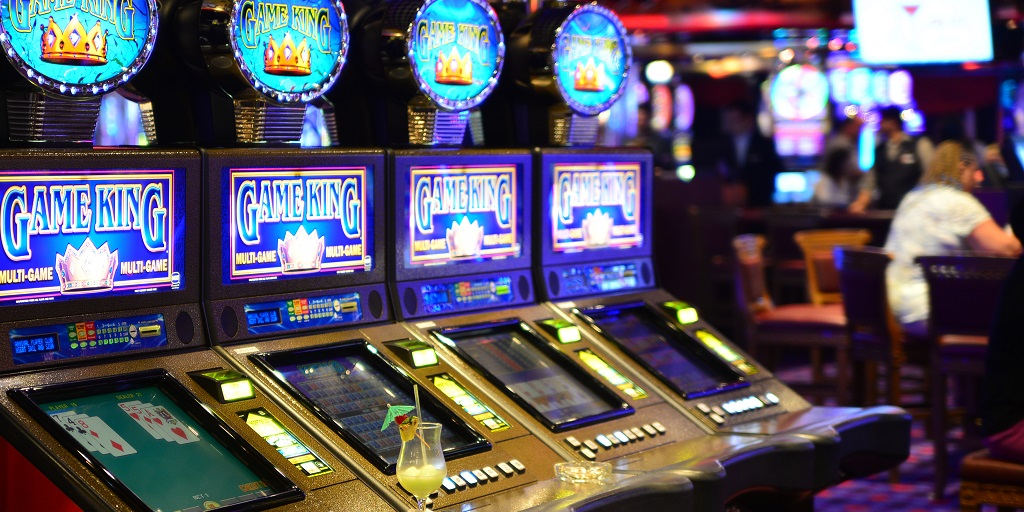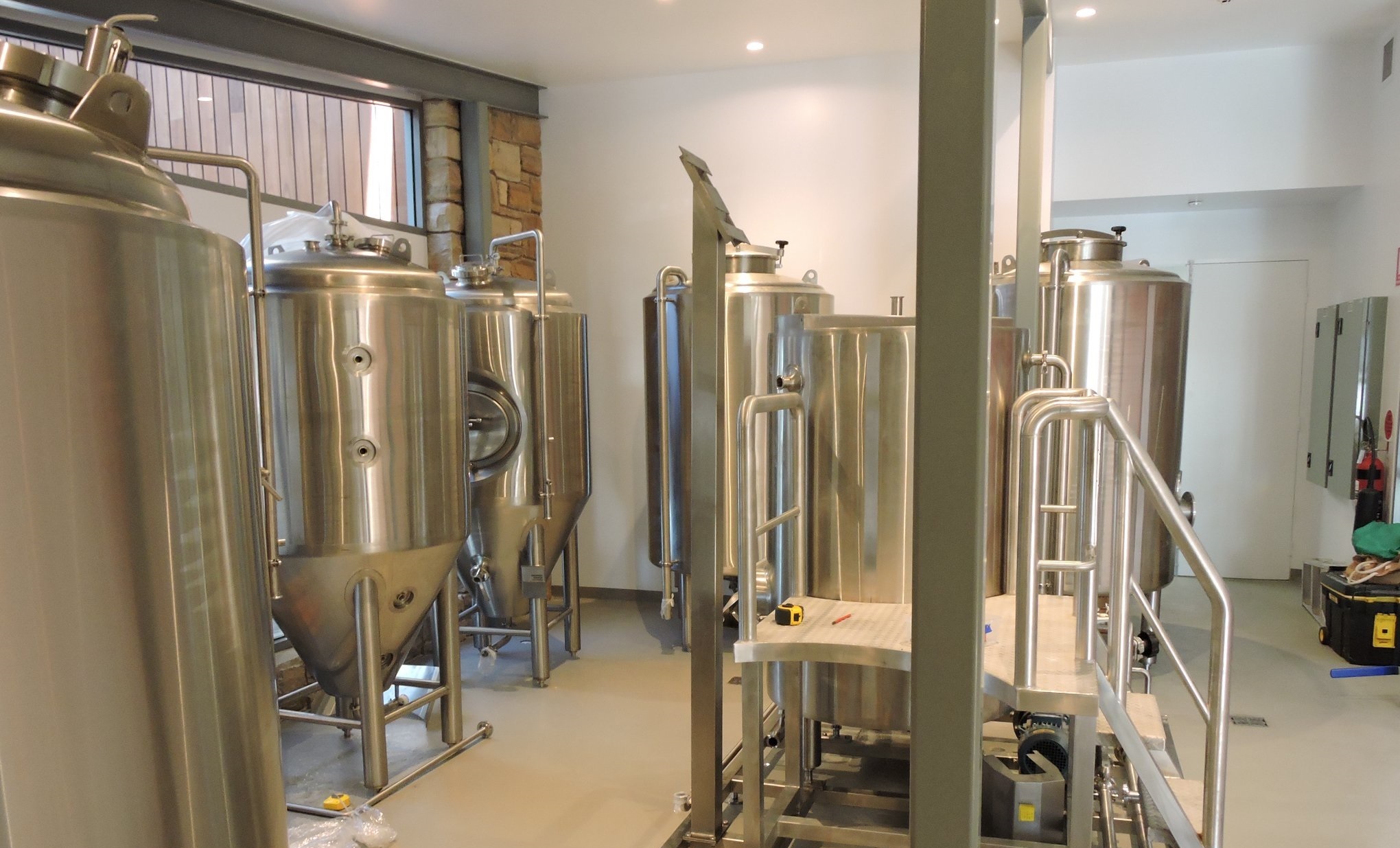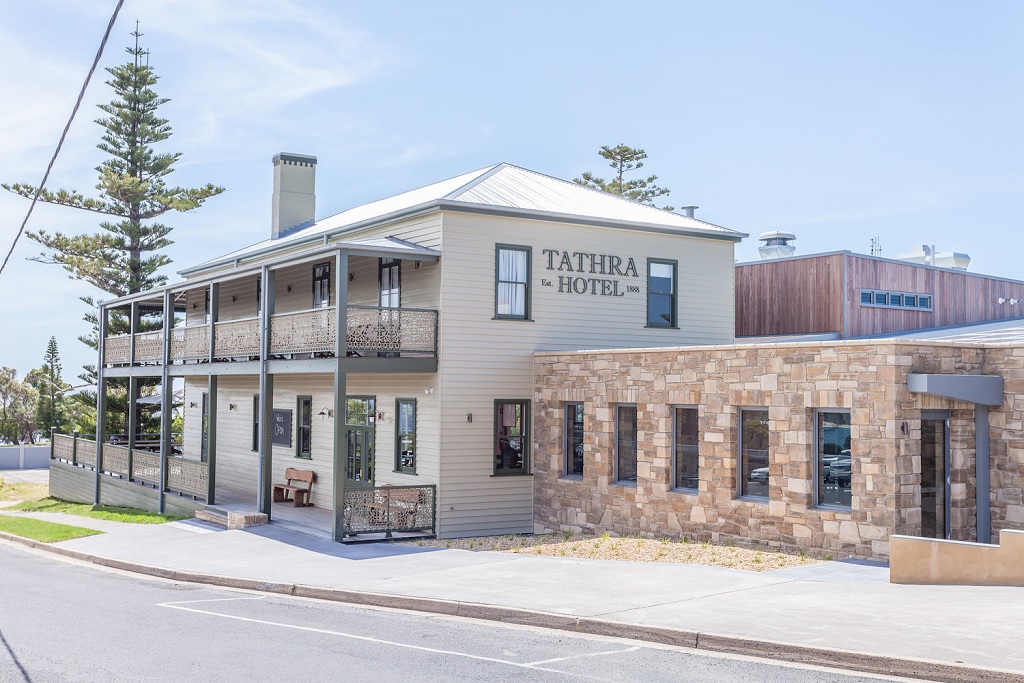
Better margins see publicans invest in craft beer despite lure of pokies

Following this month’s announcement that Woolworths is offloading its venue business ALH, along with drinks company Endeavour, the spotlight has been placed on hotels and their role in Australian venue culture.
Analysts suggested that the move was in part down to the reputational damage it had sustained from its involvement with pokies, following scandals over the supply of alcohol to gamers to keep them gambling for longer.
Investors and pundits reacted positively to the decision with Woolworths shares rising more than 4 per cent following the announcement.
The manoeuvre by Australia’s biggest pokie owner reignited the debate about the role of pokies in hotels and pubs across the country
Like bowls clubs, hotels and pubs are diversifying their offer. Craft beer, live music, accommodation and event spaces are just a few of the things publicans are investing in to stay relevant. But will they ever be legitimate replacements for pokies?
Living with pokies
According to the government’s Australian Gambling Statistics report, there are 69,088 gaming machines in hotels across the country. While this is fewer than clubs, pokies have been staple of Australian hotel and pub culture for decades.
Cliff Wallis, owner of the Tathra Hotel and Humpback Brewery, which is situated in the former pokies room of the heritage-listed New South Wales hotel, said that the advent of pokies in hotels has actually been a fairly recent occurrence in comparison with clubs.
He explained that hotels lobbied to be allowed the machines, the government having previously restricted them to clubs and casinos, in the 1990s.
When he took over the Tathra Hotel he was prepared to give them a chance.
“I hadn’t operated them before and I was prepared to see what they were about – I’m not necessarily opposed,” Cliff said.
“They weren’t going all that well and the clientele that we’d started to attract weren’t interested in them anyway.
“I was keen to change the hotel to attract professional and semi professional people that never used to come into the hotel.”
The Tathra Hotel closed for renovations in May 2016 and reopened in November 2017 without any poker machines. But having gaming machines is just a necessary evil in some corners of the industry, he said.
“[Getting rid of pokies is] not going to happen because banks value hotels and a high proportion of valuation is on the number of poker machines,” Wallis said.
“The perception in the industry is that you can’t make money without pokies.”
Industry veteran Blair Hayden of The Lord Nelson Brewery Hotel found that even after experimenting with gaming machines, they proved to be incompatible with his aims for the place.
“I have not had gaming machines, apart from a six-week trial which was kiboshed, as many of my patrons hated them in our historical establishment.”

While some hotels may be cutting out gaming machines and diversifying, or sticking to their roots like the Lord Nelson, they are the early adopters and bucking the general consensus that pokies are worth the investment.
Paul Fraser, Queensland director of CBRE Hotels investment and brokerage team, said that it was unlikely that there would be a time when pokies would be naturally phased out, without help from government.
“The reality is that pokies have continued to do well, partly because of product innovation like the Lightning Link [a linked progressive jackpot system] and Dragon Link games by Aristocrat that have really driven up that gaming performance.”
“But the major thing which is sustaining gaming machines is regulation,” Fraser explained.
“The reason behind that sustained growth is that legislation has not changed on gaming.
“When you have stable governance and policy, people have confidence and will spend money on gaming, and they will see it as a secure and viable income stream.”
He said that with around eight years of stable legislation despite the actions of multiple independent politicians meant pokies remain a safe bet for hotels.
“If you consider the actual noise around pokies for the last seven or eight years, it’s considerably less than the years prior to that. It’s been deemed by the market to be a stable income and so publicans are happy to invest.”
He also said that state laws had an impact, both in terms of allowing pokies but also limiting them.
“In Queensland, as far as the region is concerned we are constrained by the amount of gaming machines available,” he said.
“There are no gaming authorities around in South East Queensland. If you want a brand new venue [with pokies], someone has to surrender those machines.”
The future holds consolidation for the sector though, he said. The move by Coles to offload its hotel portfolio – including the more than 3,000 poker machines in them – through a JV with Australian Venue Co, and Woolies’ demerger of ALH are just examples of future trends, Fraser predicted.

Humpback Brewery being installed in the Tathra Hotel’s former pokies room
Diversification
Like other venues including clubs and shopping centres, hotels are increasingly looking to other income streams to stay afloat – and the greater the diversification the better, according to Fraser.
“Diversification of income streams is seen as being extremely valuable across the market, from the valuation stage to publicans themselves.
“A well balanced business is not as vulnerable or fickle to changes in regulation or disposable income, or anything else from a macro or micro economic view.
“Smart operators have done an incredible job of understanding the different consumer motivations for coming into a venue and looking across different demographics to determine the needs of the target audience.”
Fraser said that whatever personal opinions about gaming machines were, they are another arrow in the arsenal of a hotelier or publican when it comes to valuation time.
“If people come in for the pokies, a great venue will accommodate that, as well as providing sport on the TV, a cocktail bar, or an event space.”
The Lord Nelson’s Blair Hayden agreed, saying that there has been a revival in hotels that are food-driven, and do not rely on gaming as the primary source of income.
“Unfortunately many hotels operate on the basis of gaming but whilst I personally am not against gambling, I do have a strong feeling against the ease of money stripping, [and the effect] machines have on patrons.
“‘Each to their own’, however I firmly believe in food and beverage as the way to run pubs or hotels, and have worked over 35 years to build just that type of business,” he explained.
Fraser said that publicans were looking at other ways to create an experience for customers.
“What I have seen a large shift in is bigger publicans that have a balance of land have started to put accommodation on as well,” he said.
“Instead of just food, beverage, gaming and potentially retail, they will also have accommodation. It’s its own profit centre, but when you have 90 rooms, you have a captured market. They’ll eat and drink and put some money through the gaming machines.
“The proof is in the pudding with this. When I sell assets, assets that are very focused on one income stream or are very one dimensional like nightclubs don’t do so well.
“Publicans have looked at it and asked how to get people in earlier and stay later, as well as covering all occasions,” he said.
This was the thinking behind adding the brewery to the Lord Nelson in the 1980s, said Hayden.

Blair Hayden of The Lord Nelson Brewery Hotel
“In 1986 the reasoning was to offer a choice to patrons rather than to be dictated to by the large producers.
“[We wanted] to be innovative and alternative, to discuss beer in the same way that people discussed wine.
“The brewery and its results became a talking point, drawing patrons through innovative change, and providing a different experience and atmosphere, created in part by the olfactory experience of the brew process on site.”
The margins of craft
Fraser explained that the shift towards craft beer in forward-thinking pubs and hotels was down in part to customer demand, and also due to the margins achieved with craft beer.
“In relation to craft beer the gross profit is generally better in the craft segment than mainstream,” he said.
“The big brewers have obviously seen this and are also either creating their own or acquiring smaller breweries to have a portfolio that can compete.”
“I guess the difference is that a consumer is happy to potentially pay more for a “seasonal” or craft beer that is a bit artisan as opposed to paying overs for a XXXX Gold which has a long and established market value.”
This is part of a growing trend across the liquor industries, and Fraser has a unique perspective on both angles, having launched the Diageo premium portfolio in a former life.
“When I launched the Diageo portfolio, we wanted that shift from Bundi rum to Pampero.
“It’s better for the liquor or beer companies, because the margin on craft beer is considerably bigger than on mainstream.”
It’s true that in general people are drinking less, particularly in countries where beer and wine are most prevalent, but publicans are combating this trend by focusing on quality rather than quantity, Fraser explained.
“As volume decreases, you still have to increase or maintain your margins and you can’t do it through volume so you have to do it through value.
“It’s absolutely fair to say consumers are becoming more discerning overall, they are happy to pay more for a better beer.”
But it’s not just about the margins, according to the Lord Nelson’s Blair Hayden.
“Attitudes to craft beer in the hotel industry have changed tremendously. It is like wine now, and has become an industry driven by choice, quality and innovation, natural sustainability – it’s evolving and exciting.
“As the oldest existing craft brewery in Australia, it was the freedom of choice, the ability to offer natural, different styles, well away from mainstream lager, use of all natural ingredients, innovative taste profile, [and include a] large range of styles with exciting packaging.
“It is and was those differences to the hotel industry of the eighties that took until the 2000’s for the Aussie punter to embrace them and to comprehend what choice they were being offered.”
It won’t be like this forever though, Hayden warned.
“There is however a limit, with over 800 craft breweries it is becoming more and more competitive and as a result creating a strength in businesses that are on the ball and indeed resultant failure for those who take it lightly. The craft business is not for the faint hearted,” he said.

Tap contracts
Paul Fraser said that bigger brewers were easing their hold on pubs and hotels in relation to tap contracts, which had been a feature of pub life for years an even resulted in an investigation by the ACCC into claims they were “anti-competitive”.

Paul Fraser of CBRE
“They have relaxed it to a certain degree, with roaming taps and tap of the month.
“In my day you were 80 per cent minimum with CUB and the rest was the other big player.
“Now publicans in the game for a long time potentially do 40 per cent of taps with Lion, 40 per cent with CUB, and the rest with indies like Stone & Wood.”
He said the disparity between alcohol prices off and on premise has never been bigger, which is driving the move towards craft, although the mainstream brewers are catching on.
“They have had their market share eroded by craft beer. In fairness to CUB/AB InBev, they have first of all chased the craft market themselves and acquired craft brewers. They have fully admitted their portfolio wasn’t conducive to consumers today and attempted to change that.”
“The big beer guys have understood that if they want to be a partner, they need to increase their own portfolio and/or allow publicans to get involved with other brewers.”
Tathra Hotel’s Cliff Wallis said that making the move to craft was a conscious decision.
“When we reopened the hotel, we didn’t have any mainstream beers on tap and we made a decision to have no mainstream beers on tap.
He now has 12 taps in total, including two with cider and the remaining with their own and other regional breweries – though Canberra was as far as they searched for their beers.
Blair Hayden of Sydney’s Lord Nelson Brewery Hotel who spearheaded the launch of the brewery on site in 1986, said that along with Sydney’s lockout laws, the move towards a more diverse set of taps has been one of the major changes in the hotel industry.
“[One of the major changes has been] the establishment of pub breweries and craft breweries, giving hotels and emerging small bars the right of choice which beers they put on tap and the choices of packaged stock in their fridges,” he said.



